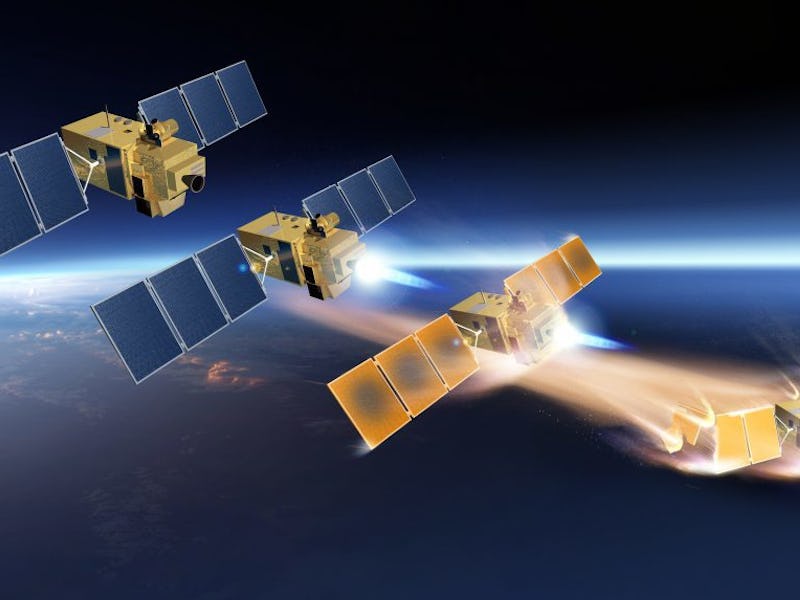Project TeSeR Could Fix Earth's Space Junk Problem
Could this be the way we deal with all the stuff filling up Earth’s orbit?

We have to deal with our space junk problem. There are half a million bits of space debris zipping around Earth at more than 22,000 miles per hour right now. Though small (between 1 and 10 centimeters), that debris can wreak havoc on satellites or spacecraft because we have no way of tracking that orbital detritus.
Various theories have been floating around about how to best deal with increased orbital debris, ranging from lasers, to space-bound garbage disposals. The latest proposal is Technology for Self-Removal of Spacecraft, or TeSeR, designed by Airbus Defense and Space.
TeSeR is a design for a module that will automatically move a spacecraft that has reached the end of its operational lifetime out of orbit and toward reentry into Earth’s atmosphere, where it will burn up and become someone’s shooting star. The module will also work as a backup removal tool to get a spacecraft out of Earth’s orbit in case we lose operational control of the vessel.
The problem with leaving obsolete or nonfunctional spacecraft in orbital space is that they continue to zip around and threaten the satellites and other equipment we actually do use. Most satellites are not equipped with any kind of evasive maneuver capabilities — so it’s a sitting duck if another object is hurtling toward it. Many orbital debris experts are pushing hard for governments around the world to start mandating that private companies apply measures that will ensure any spacecraft that reaches the end of its life can be removed from orbit within a couple of decades.
The second largest space company in the world, Airbus, received funding for TeSeR from the European Union to the tune of over $4 million. That money is being used to develop a prototype of the module.
The company’s announcement is scant on details, but ideally, the module will gauge the operational lifetime of a spacecraft and then coordinate to move it out of Earth’s orbit by slowing it down and forcing it to lose the velocity required to keep it from being pulled back down to Earth.
Airbus’ EU funding runs through 2018. By that time, we’ll hopefully find out whether TeSeR is the space junk game-changer people are itching for.